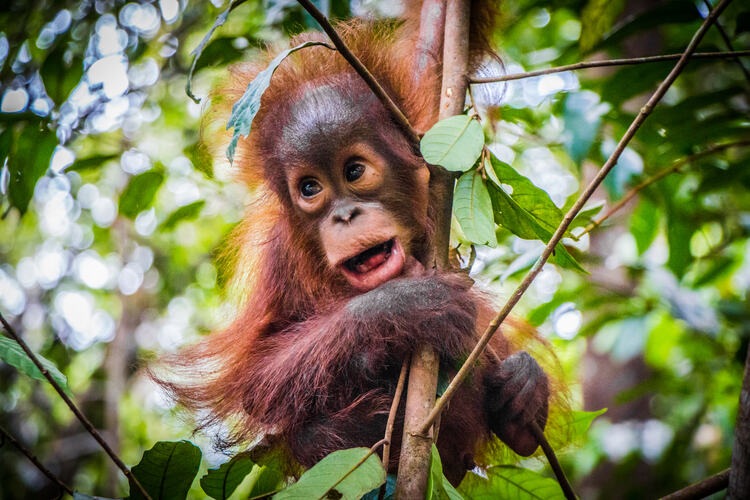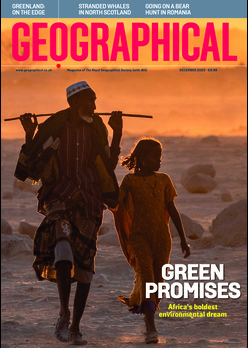
To the shock of conservationists, Malaysia has offered to gift critically endangered orangutans to major palm oil-consuming nations
By
In what is possibly one of the most surreal environmental stories so far this year, Malaysia’s Commodities Minister, Johari Abdul Ghani, has said that his government will gift orangutans to major palm oil-purchasing nations.
The minister said that by doing so, he hoped his country would generate the same kind of goodwill as China does with its ‘panda diplomacy’ (whereby the Chinese government loans pandas to other countries as a tool of diplomacy and, supposedly, for conservation purposes). ‘This will prove to the global community that Malaysia is committed to biodiversity conservation,’ Mr Ghani said on X.
However, the minister seems to have rather overlooked the fact that one of the main reasons that orangutans are classed by the International Union for Conservation of Nature (IUCN) as critically endangered is because of the conversion of the orangutan’s rainforest home to vast monocultures of palm oil.
The minister’s proposal follows the European Union’s agreement to an import ban on commodities linked to deforestation. However, Malaysia has considered the ruling discriminatory and a ‘deliberate effort’ to increase barriers to its palm oil sector.
The name orangutan means ‘man of the forest’ in Malay and, when you consider that these giant orange apes share 96.4 per cent of our genes, then it’s perhaps an appropriate name. There are three different species of orangutan (Bornean, Sumatran and tapanuli). All three species live in rainforests on the Southeast Asian islands of Borneo (Indonesia, Malayasia and Brunei) and Sumatra (Indonesia).
In recent years both of these huge islands, which were once largely rainforest, have suffered from massive deforestation. A 2020 study revealed that Borneo had lost 50 per cent of its rainforest between 1973 and 2015. Much of this was due to the expansion of palm oil plantations. The United Nations Environment Programme has said that palm oil plantations are now the leading cause of rainforest destruction in Malaysia and Indonesia. It’s thought that an area of forest equal to 300 soccer fields is being destroyed every hour.
Palm oil is a vital ingredient in many food products and household items, including cosmetics, cereals, biscuits, crisps, toothpaste, soap, shampoo and biodiesel (which, of course, makes it not very bio at all), among many others. It’s been estimated that between 1999 and 2015 more than 100,000 orangutans were lost from the forests of Borneo. According to WWF, the current population of orangutans on Borneo stands at around 105,000. The group have raised concerns about the Malaysian government’s plans with a spokesperson telling the Reuters news agency: ‘WWF supports in-situ conservation of wildlife, and would urge that trading partners are brought to Malaysia to support this initiative, as opposed to sending orangutans out of the country’
Related articles:




